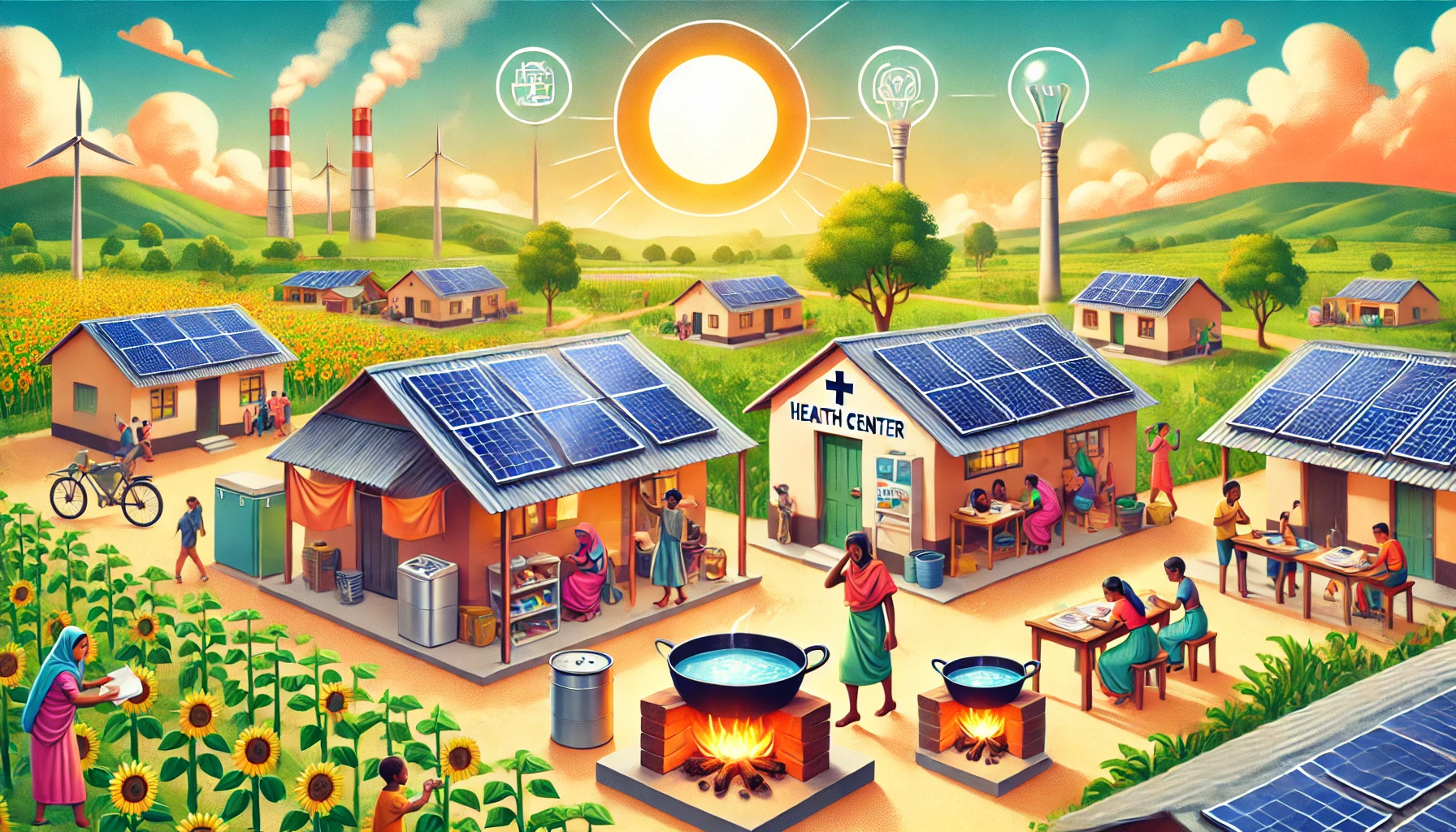Africa stands at the brink of a transformative opportunity. Soon to become home to the world’s largest workforce, the continent can potentially emerge as a global economic powerhouse—if its people gain access to reliable and sustainable energy. Today, nearly 600 million people in Sub-Saharan Africa live without electricity, relying on firewood, charcoal, or expensive and polluting generators. This lack of modern power stifles economic growth, health, and education.
Recognizing the urgent need to bridge this energy gap, the World Bank Group and the African Development Bank launched "Mission 300" at the 2024 Spring Meetings. The initiative seeks to connect 300 million Africans to electricity by 2030, a goal that is now rallying development partners across the globe.
Here are five key insights into the ambitious effort driving this mission:
Electrification is Essential for Development: Africa is home to 83% of the world’s unelectrified population, a fact that severely hampers the continent’s economic and social development. Affordable, reliable energy is essential for businesses and individuals to thrive. Moreover, increased electricity access will enhance Africa’s ability to adapt to and withstand climate impacts, powering hospitals, schools, climate-resilient agriculture, and emergency services like shelters. To put Africa on a prosperous path, the pace of electrification must triple in the coming years.
Significant Progress Has Already Been Made: The World Bank Group and the African Development Bank have committed to connecting 250 million and 50 million people, respectively, to electricity. Various programs are already laying the groundwork for success. In Eastern and Southern Africa, the Accelerating Sustainable and Clean Energy Access Transformation (ASCENT) initiative aims to bring energy to 100 million people in 20 countries. Countries like Burundi, Rwanda, and Tanzania are among the early beneficiaries. Similarly, in Western and Central Africa, projects like Nigeria’s Distributed Access through Renewable Energy Scale-up (DARES) and the Regional Emergency Solar Power Intervention Project (RESPITE) are making progress, connecting millions to renewable energy and reducing dependence on polluting diesel generators.
Private Sector Investment is Crucial: Mission 300 will require significant funding, far beyond the resources of development banks. Private sector involvement is essential to scale up investment in energy infrastructure, including transmission, distribution, and cross-border energy trade. The World Bank Group’s International Finance Corporation and Multilateral Investment Guarantee Agency are stepping up to provide incentives and guarantees for private companies, encouraging greater participation in Africa’s electrification.
Regional Partnerships are Vital: The success of Mission 300 relies heavily on strong partnerships with regional institutions. Collaborating with organizations like the Common Market for Eastern and Southern Africa (COMESA), Mission 300 is creating platforms to help countries access technical support, financing, and knowledge-sharing. This will streamline procurement, mobilize investment, and ensure that projects are investment-ready, laying the foundation for large-scale electrification efforts.
Philanthropic Support is Growing: Philanthropy has also emerged as a key player in supporting Mission 300. Foundations like The Rockefeller Foundation and the United Nations’ Sustainable Energy for All initiative are mobilizing both public and private funds to complement the resources of the World Bank Group and the African Development Bank. As world leaders gather for the 79th session of the United Nations General Assembly, these efforts will be the subject of intense discussions on the sidelines, highlighting the role of philanthropy in Africa’s energy transformation.
Every step towards electrifying Africa brings the continent closer to achieving broader development goals, including the World Bank’s mission to end extreme poverty and foster shared prosperity on a livable planet. Access to energy is key to unlocking Africa’s full potential and transforming it into a global economic leader.











